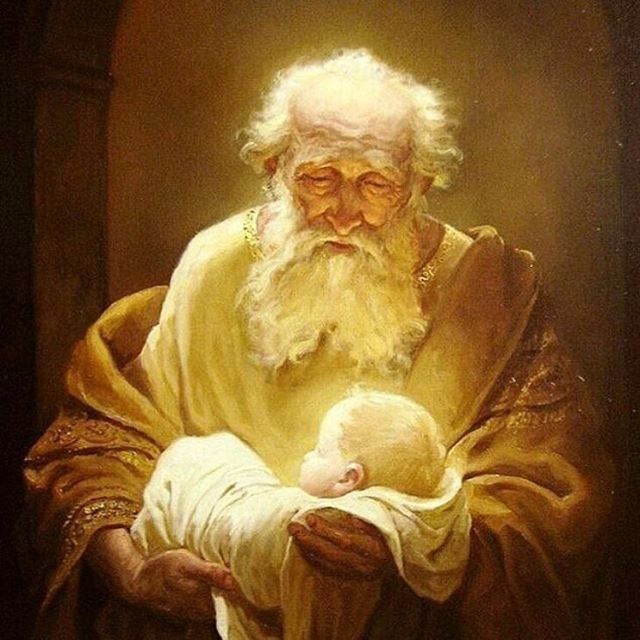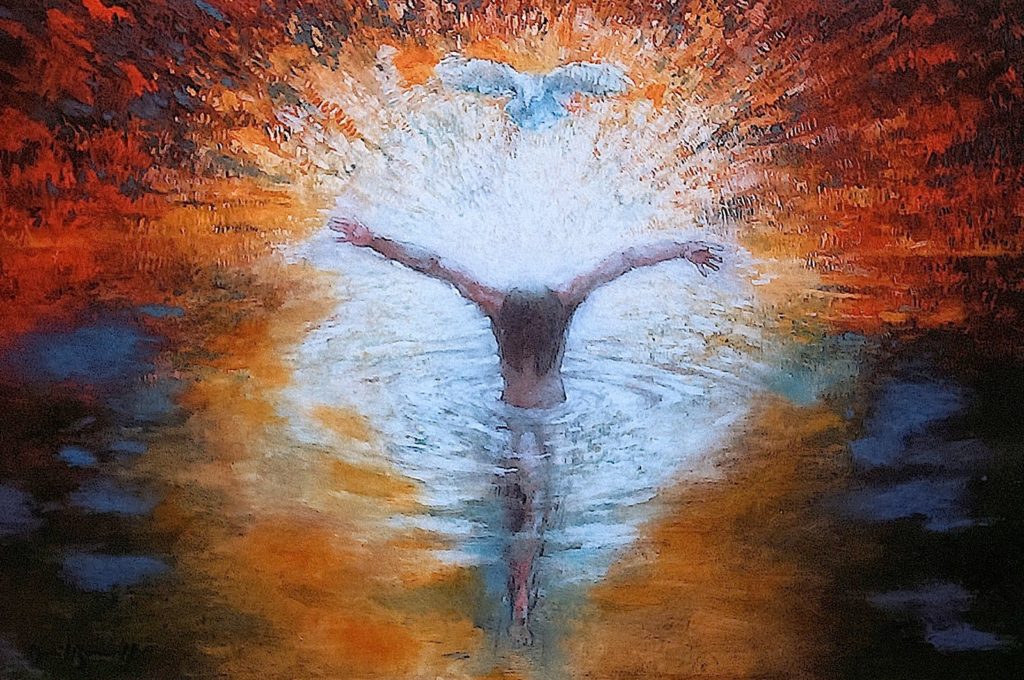
the Ninth Sunday after Pentecost
Proper 13
Baptism
August 2nd, 2020
Today’s readings are:
Isaiah 55:1-5
Psalm 145: 8-9, 15-22
Romans 9:1-5
Matthew 14:13-21
If you don’t have a Bible handy, you can find these readings here.
Baptisms are great, aren’t they? I think the theme for any baptism is “my cup runneth over.” Back in seminary, I was taught that, at a baptism, you should use lots of stuff. Water – use tons of it. Submerge if you can, if you can’t, make sure to get everyone wet. And chrism? Make the whole church smell of it. Get so much on your hands so that you smell that chrism through the rest of the day on your fingers. Our dean, the old bishop of Atlanta, said that we should pool as much chrism in our hands and slap it on the baby’s head (slap it gently, of course). And then, at the end, we’re supposed to use what’s called an aspergellum, that little wooden thing with a sponge at the end, and take holy water and fling it on everyone in the pews.
And, of course, now with our pandemic and all, I’m not going to use as much stuff as I want, but our cup still runneth over. You might not get wet, and I’m only going to use the tiniest little bit of oil, but this is still a party. There should be too much of something, and, luckily, even at baptisms when there’s no virus, the cup still runneth over in other ways as well.
And part of the cup that runneth over, or, well, the runneth over part, that’s all of you. It’s the Church, it’s our community, it’s the people of God sitting here, not just watching, but living the water that runneth over the cup that is Theodore’s life.
You see, there’s something special about baptism. It’s the same thing that’s special about all the sacraments, of course, but it’s especially special about baptism. Because, in a way, baptism is just for the person being baptized. We are here gathered together to baptize this little kiddo, little Theodore, who we’ve been praying for since more than a year ago, praying that he’d be healthy, that his parents would be healthy, that he’d be raised in a household and a community of love and affection and safety. And here that same family is bringing that same little Theodore before God and saying, Lord God Almighty, baptize Theodore into your love. Seal him with the Holy Spirit. Give to him the grace that your Son gave to us on the Cross, with the Empty Tomb, with his Birth, Death, Resurrection, and Ascension. Pour out that grace and that love on little Theodore. We’ve come here to make that prayer and to make it for Theodore.
But, just as much as today’s baptism is about Theodore alone, it’s also not at all about him alone. It’s about the Church as well, and I mean that Church with a capital “C”. Baptisms are not only about the individual; they are, but they’re also about the community. There’s a reason we are celebrating this baptism on a Sunday morning at our usual Sunday worship. Baptisms are a celebration of the whole community. Theodore is being brought into that community, which is that great Body of Christ, through your presence, your prayers, and indeed your promises.
And part of the wisdom of this is because, well, quite plainly, Theodore is a baby. Babies don’t talk, I mean, they babble, but they don’t talk, and they certainly don’t make baptismal promises within a high Episcopal liturgy. And what we are doing here, in making those promises on his behalf, is promising to help raise him in the Christian faith. And while I hope that many of you will keep in touch, we are not making these promises for ourselves alone but for the whole Church, from Coquille to Chicago to Cairo and back. We are making a promise to raise Theodore in Christian love and hope for the people at whatever church the Browns will be attending in five years. You’re making a promise for a little old lady sitting in the front pew in some church that has never heard of Theodore – yet. You’re making a promise for the Brown’s family friends who will teach Theodore really, really important lessons about Christ’s sacrificial love, and the Browns may not know who these family friends are just yet. They’re out there, somewhere, a part of the Church and a part of that promise. And that little old lady, those family friends, they’ll be living out your promises just as you yourselves are living out the promises made by some folks in Tennessee who promised, as the Church, to raise Gwendolyn in the Christian faith. You might not know who Isabella Leake and Melissa Heartly are, but they made promises for Gwendolyn that you are now living. You are doing the same for Theodore.
And that’s the thing about the Church. And that’s the thing about Baptism. And that’s the thing about God and God’s love for us. We experience it and live it in community, even as we know that God was Incarnated as Jesus Christ, lived, taught, died, and was raised to life, for each and every one of us. We are not alone in Christ. We are together, with those who have come before and those who will come after, with those who walked with Jesus Christ as his footed his way to Jerusalem and those who will be baptized a thousand years from now in the third millennium. Theodore is being baptized today into a community of love that has as its center and its essence our Lord and Savior Jesus Christ.
And that’s pretty cool, I gotta say. And here’s something even cooler. In these waters, these waters right here in this little bowl, is a presence of love that is more powerful, that is deeper, that is huger than we can ever imagine. For God’s love for us is so awesome that is overflowed death itself and made even death the gateway to new and eternal life. We are baptizing Theodore today into that eternal and holy promise, that promise from God that is not just the center of our lives but the center of all existence, from Coquille to the planet Saturn to Alpha Centari and back. And we are witnesses to that, and not just witnesses who watch but witnesses that are living members of that love. I can think of no greater joy, no greater responsibility, no greater hope, and no greater community than that love. And it is into this that we are baptizing Theodore. And it is within this love that we ourselves live and move and have our being – now and for all eternity.




